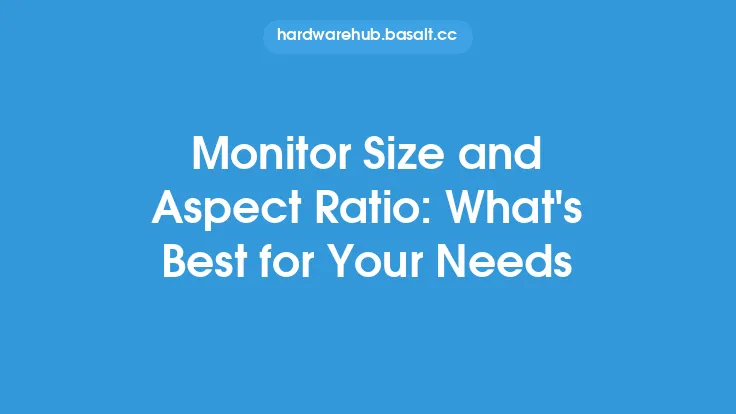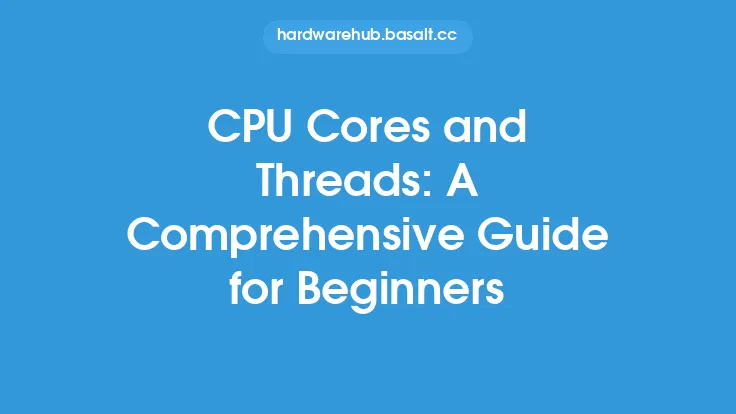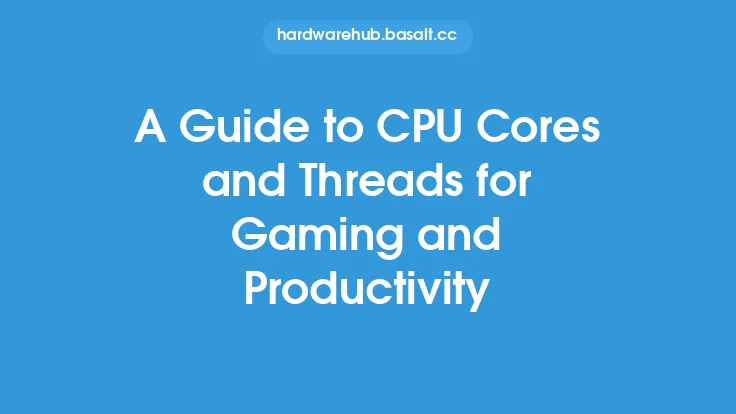When it comes to choosing a CPU, one of the most important considerations is the combination of core and thread count. The ideal combination depends on various factors, including the intended use of the computer, the type of applications that will be run, and the budget. In this article, we will delve into the details of CPU core and thread count, exploring the technical aspects and providing guidance on how to choose the right combination for your needs.
Introduction to CPU Cores and Threads
A CPU core is the primary processing unit of a computer, responsible for executing instructions and handling tasks. A thread, on the other hand, is a separate flow of execution within a program, allowing multiple tasks to be performed concurrently. The number of cores and threads in a CPU determines its ability to handle multiple tasks simultaneously, with more cores and threads generally resulting in better performance.
Core and Thread Count Combinations
The combination of core and thread count can vary significantly depending on the CPU model and manufacturer. Some common combinations include:
- Dual-core with 2 threads: Suitable for basic tasks such as web browsing, email, and office work.
- Quad-core with 4-8 threads: Ideal for more demanding tasks such as photo editing, video streaming, and entry-level gaming.
- Hexa-core with 6-12 threads: Suitable for more advanced tasks such as 3D modeling, video editing, and mid-level gaming.
- Octa-core with 8-16 threads: Ideal for heavy-duty tasks such as 4K video editing, 3D rendering, and high-level gaming.
- Multi-core with many threads: Suitable for extreme workloads such as data centers, scientific simulations, and professional video production.
Technical Considerations
When evaluating core and thread count combinations, several technical considerations come into play. These include:
- Clock speed: The speed at which the CPU executes instructions, measured in GHz.
- Cache memory: A small, fast memory that stores frequently accessed data, reducing the time it takes to access main memory.
- Hyper-Threading (HT) and Simultaneous Multithreading (SMT): Technologies that allow multiple threads to be executed simultaneously on a single core, improving multithreading performance.
- Core architecture: The design of the CPU core, including the number of execution units, pipelines, and other features that affect performance.
Choosing the Right Combination
To choose the right core and thread count combination, consider the following factors:
- Intended use: Different applications have varying requirements for core and thread count. For example, gaming typically requires a high clock speed and multiple cores, while video editing requires multiple cores and threads.
- Budget: Higher core and thread counts generally result in higher costs.
- Power consumption: More cores and threads typically result in higher power consumption, which can be a concern for laptops and other mobile devices.
- Upgradeability: Consider whether the CPU can be upgraded or overclocked to improve performance.
Real-World Applications
The ideal core and thread count combination varies depending on the specific application. For example:
- Gaming: A quad-core or hexa-core CPU with 4-12 threads and a high clock speed (at least 3.5 GHz) is suitable for most modern games.
- Video editing: A hexa-core or octa-core CPU with 6-16 threads and a high clock speed (at least 3.5 GHz) is ideal for 4K video editing and 3D rendering.
- 3D modeling: A quad-core or hexa-core CPU with 4-12 threads and a high clock speed (at least 3.5 GHz) is suitable for most 3D modeling tasks.
- Scientific simulations: A multi-core CPU with many threads (at least 16) and a high clock speed (at least 3.5 GHz) is ideal for scientific simulations and data analysis.
Conclusion
In conclusion, choosing the right CPU core and thread count combination depends on various factors, including the intended use, budget, and technical considerations. By understanding the technical aspects of CPU cores and threads, you can make an informed decision when selecting a CPU for your needs. Whether you're a gamer, content creator, or scientist, the right core and thread count combination can significantly impact system performance and responsiveness.





